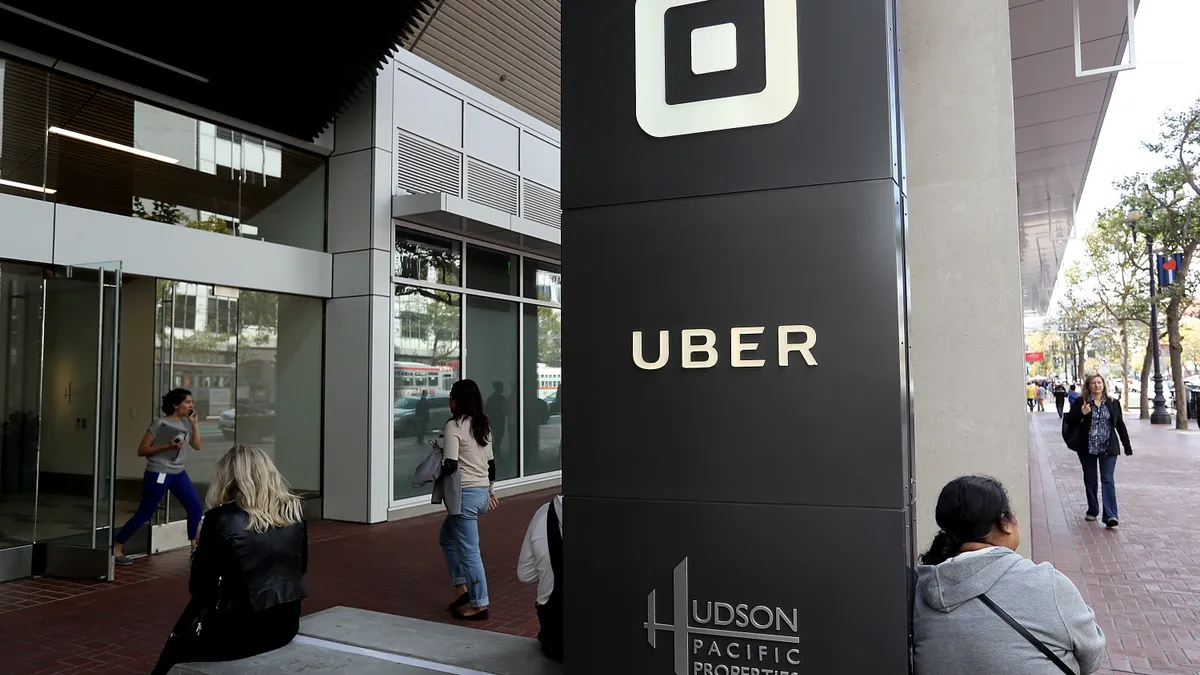Dive Brief:
- The Federal Trade Commission voted Thursday to approve a new policy statement indicating it would “use the full portfolio of laws it enforces to prevent unfair, deceptive, anticompetitive, and otherwise unlawful practices affecting gig workers.”
- The commission said gig companies that classify their platforms’ workers as independent contractors may seek to retain control over workers while shifting costs and risks on to them. It noted that gig workers may be subjected to deceptive or unfair pay practices, undisclosed startup or training costs, and restrictive contract terms that limit their ability to seek other work, among other issues.
- FTC said it would seek enforcement measures against gig entities as well as partnerships with other law enforcement agencies, referencing a recent memorandum of understanding with the National Labor Relations Board on gig worker issues. The commission encouraged gig workers harmed by unlawful practices to file electronic reports via its fraud reporting website.
Dive Insight:
Gig work expanded significantly during the pandemic and now accounts for a significant chunk of U.S. economic output; the FTC cited a 2019 estimate that the sector would generate $455 billion in annual sales by 2023. In a statement Thursday, FTC Commissioner Rebecca Kelly Slaughter said the commission’s statement “makes clear that FTC is going to use the full breadth of its authority” to protect gig workers from unfair conduct.
“Just as consumers deserve the benefits of competition when it comes to purchasing goods and services, gig workers deserve the benefit of competitive markets for their labor,” she added. “Robust competition for workers’ labor can help boost wages, improve benefits, and lead to better working conditions. Scrutiny of business practices and enforcement against law violations are key components in this effort.”
Historically, the gig space has been a fraught one for HR professionals, with regulators indicating that employers may face legal action for misclassifying workers as independent contractors. In June, the U.S. Department of Labor said it would be revisiting its regulations on the subject, and it asked workers and employers to provide input.
Gig work has inspired large-scale debates and legislation at the state and local levels, particularly in California. After state lawmakers passed AB-5, a law that reclassified certain independent contractors in the state as employees, voters successfully passed Proposition 22, a ballot measure that would have designated app-based drivers and delivery workers as independent contractors. But a California judge struck down Prop 22, holding that the law was unconstitutional.
AB-5 has a wide-ranging impact on industries beyond delivery services, such as trucking. The broader debate over independent contractor classification has led some gig economy companies to complain that current legal restrictions complicate their ability to address workers’ concerns around wages, benefits and other conditions.














